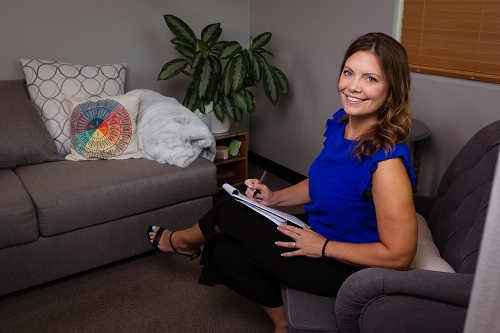While talk therapy has shown the most promise for eating disorder recovery, there are many styles of talk therapy, and these differ dramatically!
Eating disorder therapies that are most effective tend to be very directive, collaborative, focused, and behaviorally based. This means that you will not just be talking with your therapist, you will be doing! Doing things such as developing a treatment plan with specific goals, practicing exposures both in-session and between-sessions, keeping track of symptoms and skills to identify patterns and monitor progress, and building skills to consistently challenge the eating disorder.
Our therapies are skills-based, which means they are ultimately designed to get you out of therapy by giving you the tools not only to recover, but to live a life worth living in your values. The therapists at the EDI are all highly trained in the specific interventions that have shown the most promise and we have experience delivering these interventions.
Through individual therapy you will learn how to cope with unhelpful thoughts, learn to practice self-compassion, identify and validate your emotions. Our therapists are also highly competent in treating anxiety and mood disorders which so often accompany eating disorders. Therapies utilized include cognitive behavioral therapy (CBT), acceptance and commitment therapy (ACT) and dialectical behavior therapy (DBT). Built into the fabric of the EDI are values of warmth, kindness, safety, humor, and responsiveness.
We know that eating disorder recovery takes a village. So with your permission, we work hard to communicate and collaborate with all members of your treatment team and support people. Lastly, our therapists will support you in building resilience to cope with the bombardment of toxic messages in our culture related to food and our bodies.
